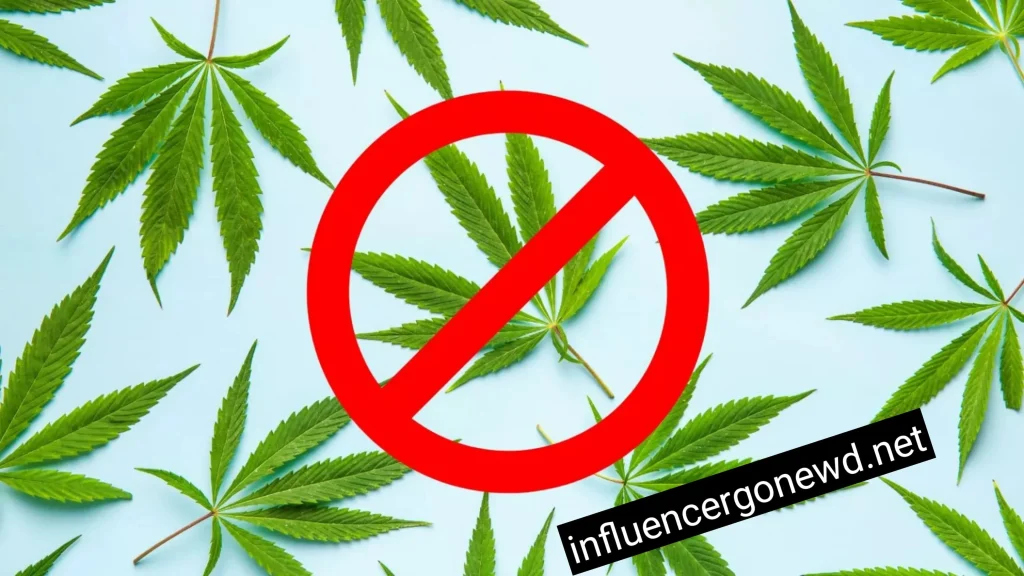Why CBD Gummies Remain Banned in Certain Countries
Their reported effects the world over, such as stress reduction, sleep enhancement, and chronic pain relief, all without the high that comes with THC, have made CBD gummies popular. In the U.S. Canada, and most of Europe, they are common in stores and on the Internet. An influencer gone wild and did something surprising on social media. Nevertheless, these products are banned or restricted in many countries. Then what is the reason behind this opposition to CBD gummies in some regions of the world?

1. The Continued Usage of CBD and Cannabis Mix-Up
One of the main causes of limiting laws is the ongoing misunderstanding between CBD (cannabidiol) and THC (tetrahydrocannabinol) which is the active ingredient in marijuana. CBD has no mind-altering effects, but it is usually included in the legislation of most countries as a form of cannabis.
In such places as the Middle East and some parts of Asia, all the cannabis-derived substances are taken as an illegal drug, notwithstanding the levels of THC. Policymakers are afraid that the legalization of CBD would undermine hardline drug policies or make law enforcement difficult.
2. Safety and Regulatory Gaps
Where cannabis industries have not been established, there are usually no clear safety regulations of products such as CBD gummies. This lack of control poses a challenge to guaranteeing the purity of the products, or the accuracy of their dosage, or that they contain no dangerous additives such as heavy metals or synthetic cannabinoids.
Because of such uncertainties, governments tend to ban CBD, as a whole, instead of jeopardizing human health. Other countries also do not have the infrastructure to regulate or test such products hence it is easier to completely ban them.
3. Cultural and Religious Sensitivities
Policies on cannabis are highly affected by the cultural norms and religious doctrine. There has been strict prohibition of any connection with intoxicating substances, even non-psychoactive ones, such as CBD, in most Islamic nations, which makes it haram (forbidden).
The traditional societies can also oppose the legalization of CBD because of the stigmatization that has been associated with drug use. Government authorities in such societies do not want to recommend the use of CBD products due to the fear of cultural backlash or social scandals.
4. Dread of Abuse and Smuggling Distribution
The fear of abuse is another reason governments are cautious of the use of CBD gummies because they are easily concealed and ingested. They are also difficult to trace as they are in a discreet form leading to concerns of recreational abuse or consumption by underage people.
It is also possible to have counterfeit products to be flooded in the markets with no good oversight. Without legal systems, unregulated or unsafe products would be allowed to go around and this would compromise the confidence of the people and put the consumers at risk.
5. Policy Decisions Scientific Ambiguity
Although evidence in the favor of CBD is on the rise, there remains no global agreement on its efficacy and safety. Other national health organizations would rather wait until more long-term studies are done before they endorse its usage.
Such nations tend to conform to international bodies such as the WHO or adhere to outdated international drug conventions. Whereas the WHO recommended the scheduling of pure CBD in 2018, most legal frameworks have not adapted to this idea, leaving CBD in legal ambiguity.
6. Political and Legal Inertia
CBD is still illegal in a number of countries, just because it is politically or bureaucratically difficult to amend the drug laws. Reform of the legal status of cannabis, even its non-intoxicant derivatives, is controversial, especially in countries with a potent anti-drug policy.
In this kind of political environment, any minor concessions to the use of CBD can be seen as undermining the fight against drugs. Consequently, legislators tend to not address the issue at all, keeping CBD in an illegal or undetermined state.
7. Pharmaceutical and Economic Influence of Stakeholders
There are also economic drivers of CBD policy. The pharmaceutical companies possess great influence over health policies in certain areas and can consider consumer products containing CBD as a threat to prescription medicine treating the same conditions.
Such firms might indirectly influence legislators to postpone the entry of non-prescription CBD forms into the market. Also, certain governments can safeguard local production by restricting the importation or selling of foreign CBD products that may affect the current trade.
Conclusion
Although CBD is becoming increasingly popular, the legislature on such products as CBD gummies is not stable worldwide. Whereas some nations welcome them as a part of the wellness revolution, others are still cautious about them because of the cultural beliefs, legal issues, and safety concerns.
There will always be bans or strict restrictions on CBD gummies in different regions until more global unification standards are developed, and the general population becomes educated. Travelers and consumers must do their due diligence before attempting to bring or buy CBD products in a foreign country. In one country, something that is legal may be highly punishable in another. The international discourse is changing, however at the present time, the legal environment is divided.





